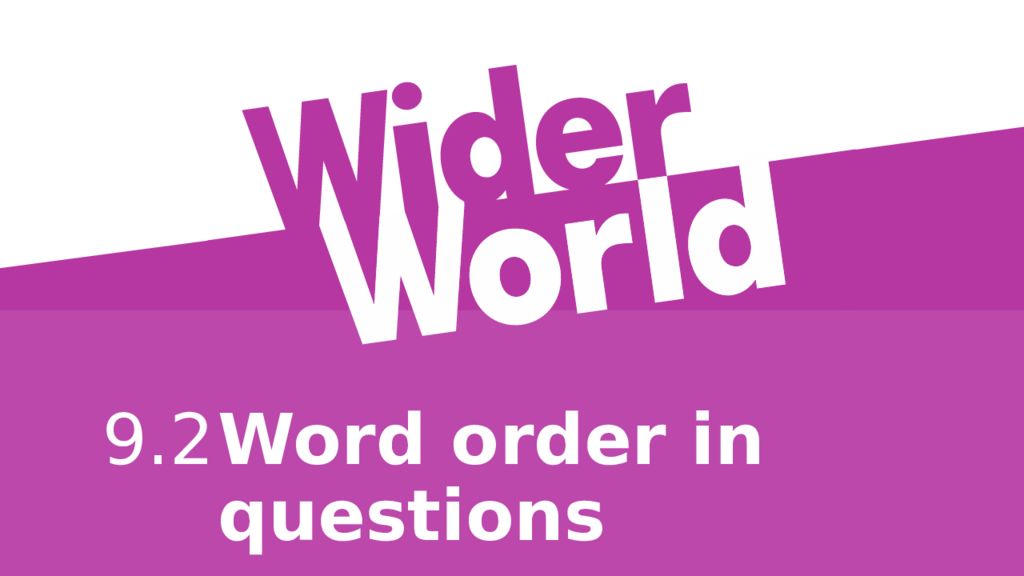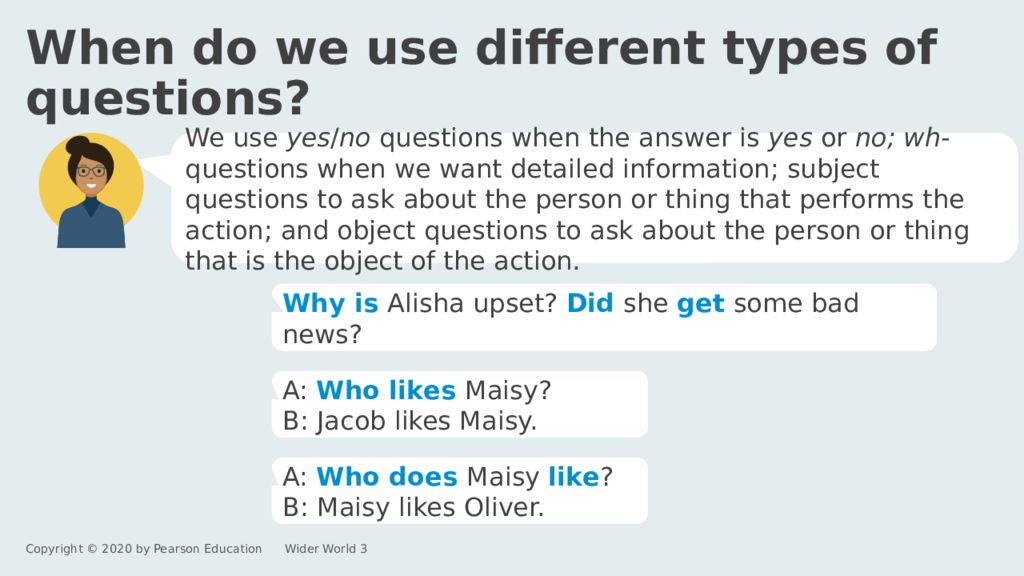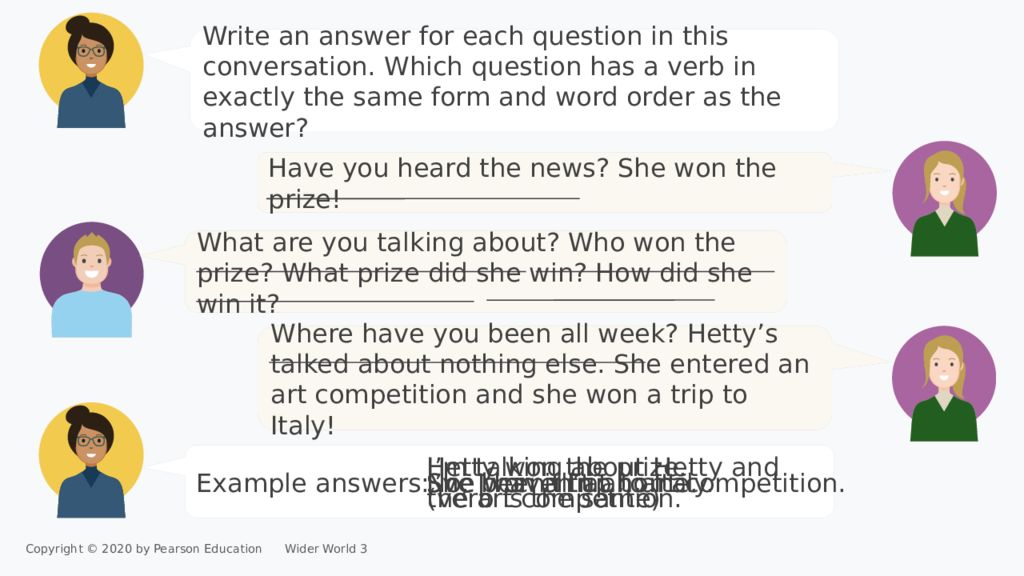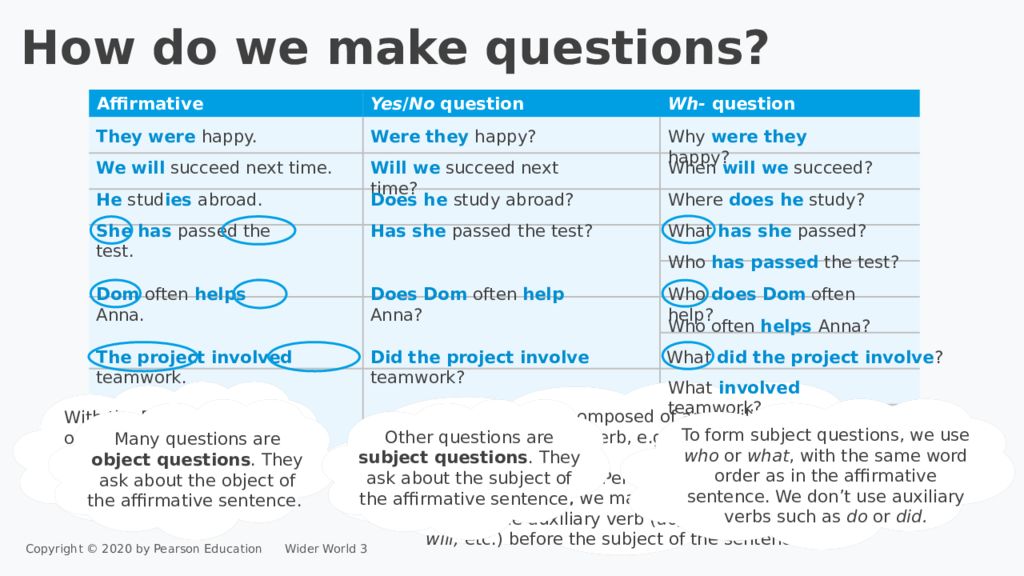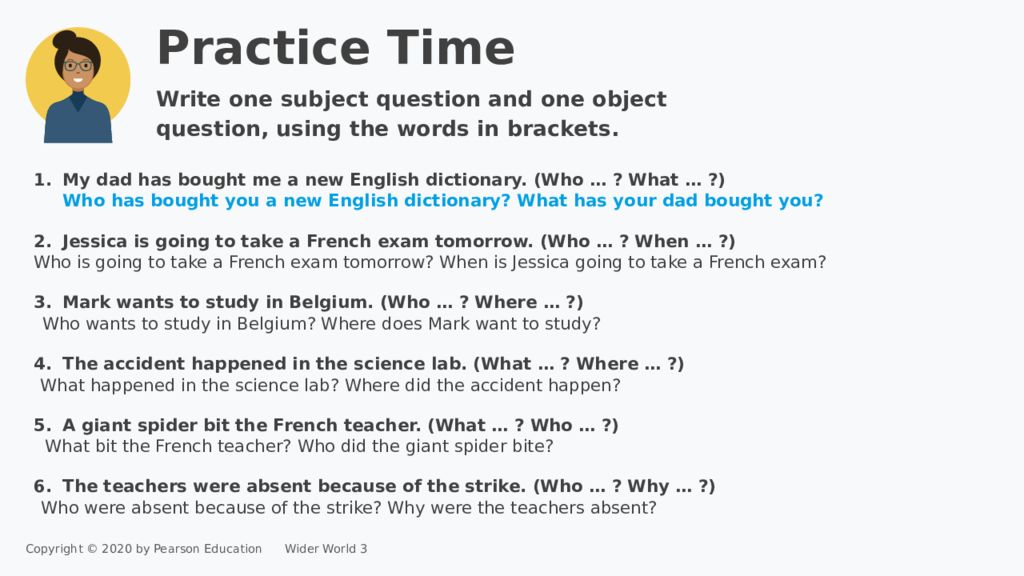Слайд 2
When do we use different types of questions ? A: Who likes Maisy ? B: Jacob likes Maisy. A: Who does Maisy like ? B: Maisy likes Oliver. Why is Alisha upset ? Did she get some bad news? We use yes / no questions when the answer is yes or no; wh - questions when we want detailed information; subject questions to ask about the person or thing that performs the action ; and object questions to ask about the person or thing that is the object of the action. Copyright © 2 020 by Pearson Education Wider World 3
Слайд 3
Example answers: Write an answer for each question in this conversation. Which question has a verb in exactly the same form and word order as the answer ? Have you heard the news? She won the prize ! Copyright © 2 020 by Pearson Education Wider World 3 What are you talking about ? Who won the prize ? What prize did she win? How did she win it ? Where have you been all week ? Hetty’s talked about nothing else. She entered an art competition and she won a trip to Italy ! No, I haven’t. I’m talking about Hetty and the art competition. Hetty won the prize. ( verb is the same) She won a trip to Italy. I’ve been ill at home. She won it in an art competition.
Слайд 4
How do we make questions ? Copyright © 2 020 by Pearson Education Wider World 3 Affirmative Yes / No q uestion Wh - question Does Dom often help Anna? Were they happy? Will we succeed next time? Has she passed the test? Does he study abroad? Dom often helps Anna. They were happy. We will succeed next time. The project involved teamwork. She has passed the test. He stud ies abroad. With the Present Simple or Past Simple of the verb to be, we make questions by moving the verb before the subject. Why were they happy? With verb forms composed of an auxiliary verb and the main verb, e.g. have got, Present and Past Continuous, Present Perfect, be going to, will and modal verbs, we make questions by moving the auxiliary verb ( do, did, is, have, will, etc. ) before the subject of the sentence. When will we succeed? Where does he study? What has she passed? Who does Dom often help? Who has passed the test? Who often helps Anna? Did the project involve teamwork? What did the project involve ? What involved teamwork? Many questions are object questions. They ask about the object of the affirmative sentence. Other questions are subject questions. They ask about the subject of the affirmative sentence. To form subject questions, we use who or what, with the same word order as in the affirmative sentence. We don’t use auxiliary verbs such as do or did.
Последний слайд презентации: Word order in questions 9.2
My dad has bought me a new English dictionary. (Who … ? What … ?) Who has bought you a new English dictionary? What has your dad bought you? Jessica is going to take a French exam tomorrow. (Who … ? When … ?) Mark wants to study in Belgium. (Who … ? Where … ?) The accident happened in the science lab. (What … ? Where … ?) A giant spider bit the French teacher. (What … ? Who … ?) The teachers were absent because of the strike. (Who … ? Why … ?) Write one subject question and one object question, using the words in brackets. Who is going to take a French exam tomorrow ? When is Jessica going to take a French exam ? Who wants to study in Belgium ? Where does Mark want to study ? What happened in the science lab? Where did the accident happen ? What bit the French teacher ? Who did the giant spider bite? Who were absent because of the strike ? Why were the teachers absent ? Practice Time Copyright © 2 020 by Pearson Education Wider World 3
